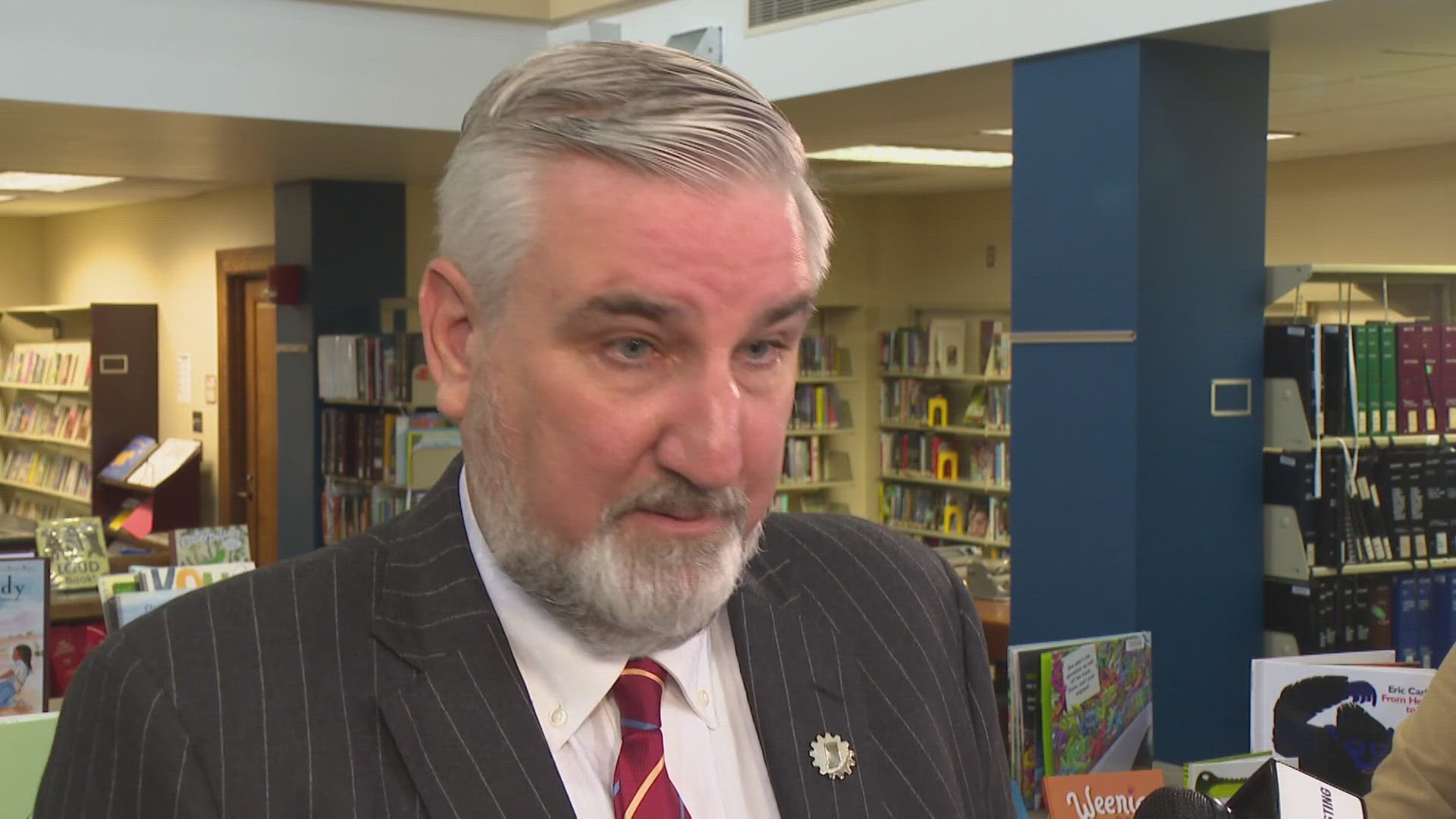INDIANAPOLIS — Indiana’s Gov. Eric Holcomb asked lawmakers on Monday to make improvements to child care and education from preschool through college a priority.
The governor, who is in the final year of his second term and cannot serve again because of term limits, presented his agenda ahead of the start of the 2024 legislative session. Holcomb will deliver his formal State of the State address Tuesday night.
“I couldn’t be more excited quite honestly about the eighth of eight years,” he said.
Indiana holds a longer, budget-making session during odd years, meaning the door is closed to items with fiscal implications. Top Republican lawmakers also have said they want to focus on education with policies to improve elementary students' literacy rates and make child care more available and affordable.
“I don’t think it takes a rocket scientist to realize the less time you’re there, the less time you’re going to learn and at a very early age has a cascading negative impact," said Holcomb.
Increasing access and affordability to child care will improve Indiana’s workforce retention and attraction, Holcomb said. He would reduce child care regulations, lowering the minimum caregiver age to 18 for infant and toddler rooms and 16 for school-age classrooms. He also wants to increase eligibility to free or reduced child care for employees of child care facilities through an already existing voucher program.
"That doesn’t mean dropping standards down. That means, if you’re going from 21 to 18, keep in mind you’re an adult...you can go fight for our country and defend it at 18...and we think with the proper training in place and oversight, whether you’re 18 or 16, with those different age groups, you should qualify and be eligible to work there,” Holcomb said.
"I think most people would agree that the folks taking care of our infants, our toddlers, and our preschoolers should be well trained, rightly equipped to take care of those children and get them off to great learning outcomes and their future," said Rep. Carey Hamilton (D-District 87). "That requires still sets and training and a level of maturity."
Senate President Pro Tem Rodric Bray released a written statement saying Senate Republicans share several of the governor’s priorities, especially pertaining to literacy among elementary school students.
Holcomb wants lawmakers to require administering the state's reading test to second graders as an early indicator of where they stand and how they can improve.
According to the Department of Education, about 18% of third graders did not pass Indiana’s reading test last year.
Holcomb also said he supports holding back more students who do not pass the test in the 3rd grade. Current Indiana policy is to keep these students from being promoted, but GOP lawmakers say the exemptions are too widely applied: Department of Education data show more than 96% of students who did not pass the reading test were advanced to the fourth grade.
"We can’t gloss over this,” Holcomb said.
Critics have said that if more students are held back, class sizes could become unmanageable, and schools won't have enough staff or resources to keep up.
"The data is clear around this — that holding students back over-all leads to no better outcomes, and often times worse outcomes for those individual students," said Hamilton.
The governor’s agenda did not include items on chronic absenteeism in schools, a topic highlighted by Republican legislators. Holcomb told reporters his administration would work with legislative leaders if they propose bills on truancy.
The governor also wants to make computer science a high school graduation requirement by 2029 to better prepare students for the workforce and higher education, and his higher education proposals include programs that provide three-year bachelor degrees.

